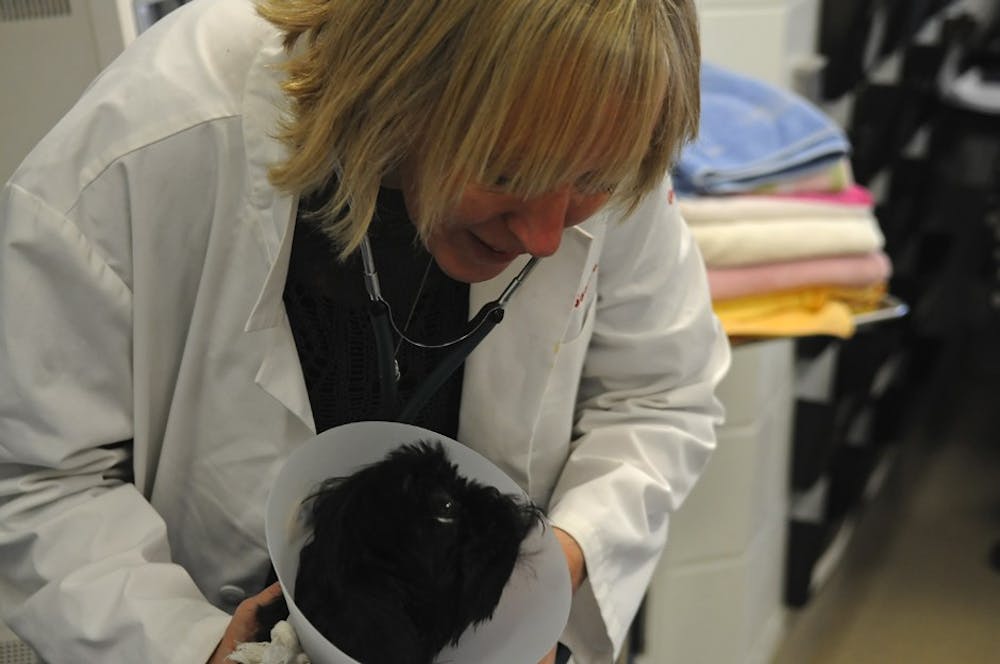Breast cancer patient Judy Higgins had surgery two weeks ago to remove her small mammary gland tumor and has “recovered well,” suffering only from a minor case of vomiting and diarrhea, according to her physician Karin Sorenmo, a professor of oncology at Penn’s Ryan Veterinary Hospital.
Higgins is one of the many dogs with breast cancer under observation in Sorenmo’s Penn Vet Shelter Canine Mammary Tumor Program, the goal of which is to provide care to homeless dogs with breast cancer and contribute to breast cancer research by studying tumor development in canine patients.
Sorenmo explained that preliminary studies of canine breast cancer tissue indicate that breast cancer progression in dogs is very similar to that of humans.
The advantage of studying breast cancer in natural hosts like dogs is that the natural system “captures the essence of cancers much more effectively” than what you might get in an artificial tumor model system, Sorenmo said.
Since dogs have a much shorter lifespan of 8-15 years than the average human being, Sorenmo explained that one could observe the progression of breast cancer in dogs much faster than it can naturally be seen in human patients.
“Dogs [also] have more mammary glands in which you can feel the small tumors,” Sorenmo added.
The program admits dogs with breast cancer from local shelters without resources to provide adequate care for these dogs. According to Sorenmo, surgical removal of the mammary tumors is often the typical course of action with these shelter dogs.
The harvested mammary tissue is then frozen and transported for analysis under the direction of professor Olga Troyanskaya at the Princeton Laboratory for Bioinformatics and Functional Genomics. Meanwhile, if the dog recovers from the surgery at Ryan Veterinary Hospital, it is then placed in a home that will care for it.
Sorenmo explained that privately-owned dogs with breast cancer are not eligible for the program because most pet owners are willing and able to acquire resources to care for their pet.
Additionally, “many privately owned animals tend to be spayed relatively early in life, especially the clientele that uses the vet school. If you spay the dog before she goes through the heat cycle, you decrease the risk for mammary tumors to less than one percent,” Sorenmo explained, adding that most shelter dogs are not spayed early due to inadequate resources.
According to Sorenmo, all dogs who have recovered from the surgery within her program have been placed in homes. If any condition relating to the mammary tumor arises in the future, the dog may be brought back for care by the program for free.
“[Although] shelter statistics reflect a grim reality about what happens to many dogs that end up on the street, there is a silver lining to these stories where people are willing to open up their homes and hearts to dogs in need and at the same time potentially contribute to cancer,” Sorenmo said.



